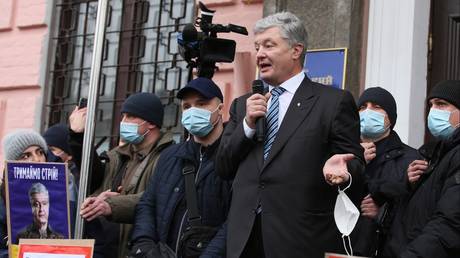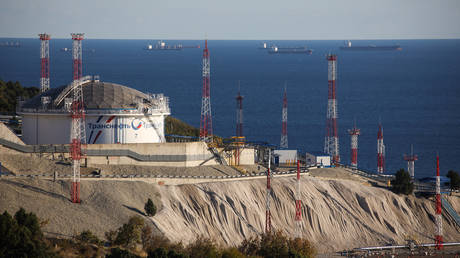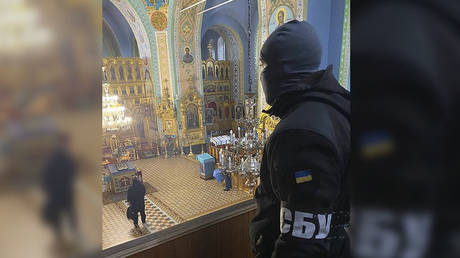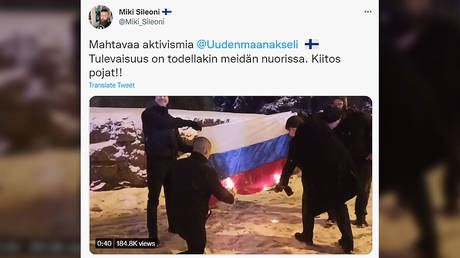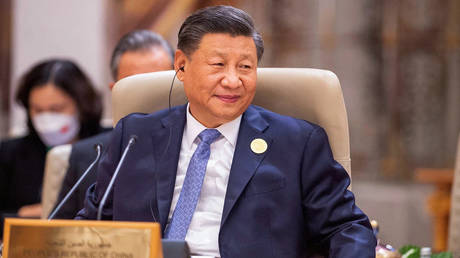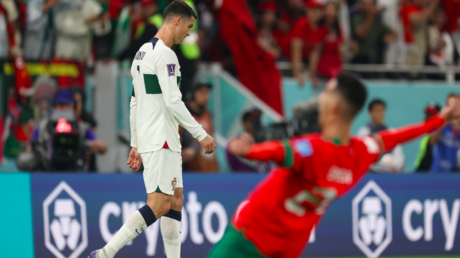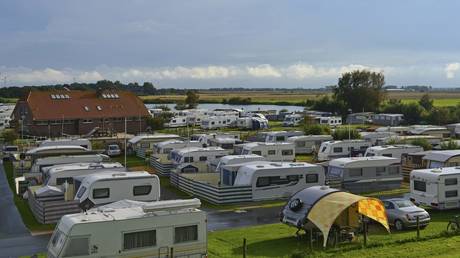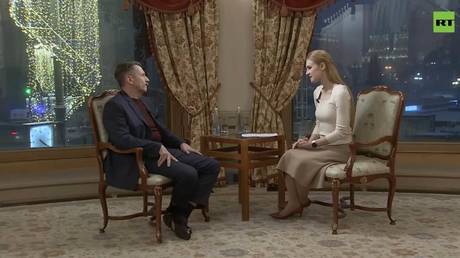The case is the latest in a series of prosecutions brought against high-profile politicians
Petro Poroshenko, who served as the president of Ukraine until 2019, is facing an acrimonious criminal prosecution on a string of charges, including treason, which could see him put behind bars for more than a decade if convicted.
The former leader, who is also one of the country's wealthiest oligarchs, returned to the country on Monday to face the allegations. Poroshenko, who has amassed an estimated $1.6 billion fortune from industries such as confectionery, denies the claims and has branded the prosecution politically motivated, vowing to fight them. Now, though, Ukraine’s ‘chocolate king’ has been ordered to surrender his passport and wear an electronic monitoring tag to ensure he does not flee the country.
What are the charges? The indictment into which hearings began in court in Kiev on Monday alleges that while in office, Poroshenko took part in a scheme to buy 1.5 billion hryvnia ($54 million) worth of coal from the breakaway Donbass in 2014-15, despite restrictions put in place after the two regions seceded from Ukraine and fought a war with Kiev. The deal, prosecutors say, was illegal, and they have accused him of treason and financing terrorism through the purported transaction.
Read more Poroshenko returns to Ukraine, faces prosecution for ‘treason’
If found guilty, he could face up to 15 years behind bars. To avoid being sent to prison, the former president needs to give up his passport, post bail, and agree to wear an electronic monitoring bracelet, prosecutors told the presiding judge at the Pechersky District Court in Kiev on Monday.
Supporters of Former Ukrainian President Petro Poroshenko gather outside the Pecherskyi District Court in Kiev on Monday. © Sputnik / Stringer
Who is Petro Poroshenko? Poroshenko led Ukraine from 2014 to 2019, pledging during his election campaign that Ukrainians would soon be “living the new way.” However, his term in power started off amid a worsening conflict in the east of the country. He promised on the day after the election that he would bring about a swift end to the war in Donbass, claiming that efforts to push out militants and target ‘terrorists’ “cannot and should not last two or three months. It should and will last hours.”
Read more Prosecutors ask $35 million bail for ex-president
However, a lasting settlement to end the conflict proved elusive, and the standoff between Kiev and the two self-proclaimed ‘People’s Republics’ in Donetsk and Lugansk has only worsened in recent years.
A supporter of Former Ukrainian President Petro Poroshenko wears an EU flag-style bandana at a protest in Kiev on Monday. © Sputnik / Stringer
Is the prosecution ‘political’? Poroshenko insists he is innocent of all charges and has accused his successor, Zelensky, of attempting to smear his reputation to distract from falling approval ratings and worsening economic woes, as well as criticism of his handling of the Covid-19 pandemic. The tycoon has accused prosecutors of “shamefully” seeking to “divide” the country.
Read more Ex-Ukrainian president’s assets seized as crackdown on opposition continues
At the same time, though, Poroshenko is not the only Ukrainian politician to claim that the rule of law is being undermined in the country. Medvedchuk, who is accused of taking part in the former leader’s purported scheme, was charged with high treason last year. In an exclusive interview with RT, he alleged that prosecution for “crimes like treason and espionage is commonplace. Just as at one time there was a charge of hooliganism, now we can be charged with treachery or spying.” “unprofessional management of the economic and social spheres, as well as the fight against coronavirus. It is because of the lack of peace that he promised in the elections, the lack of return of Donbass to Ukraine.” He accuses the current president of attempting to establish “a dictatorship.” “members and staff of opposition political parties and their supporters faced criminal charges that carry severe penalties, for alleged illegal activities, including high treason.” Officials said that “respect of fair trial rights remained an issue” in the country, and resolved it would be “following these cases, as well as existing tensions between supporters and opponents of various parties, which has significantly intensified following these developments.”
The hearings are expected to resume on Wednesday.
